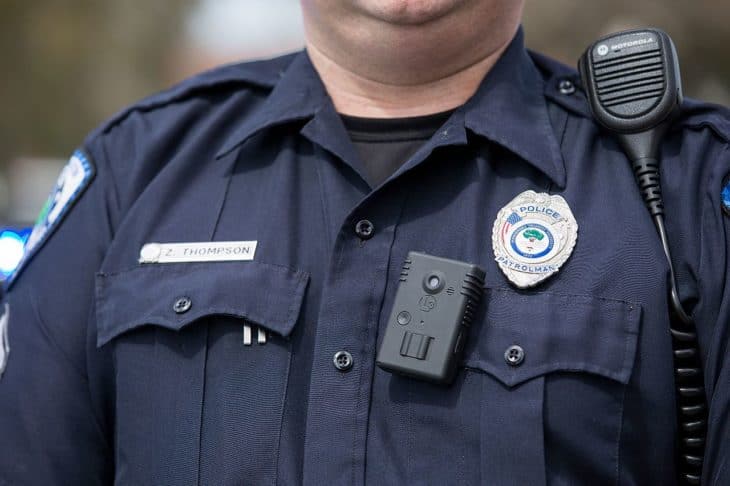Many police departments require officers to wear body cameras to provide the public with increased transparency. The use of body cameras by law enforcement agencies has led some people to wonder whether civilians can wear the same devices in public.
TLDR – Civilians can wear body cameras if they do not violate any laws related to the use of recording devices in public. For example, in many states, it is illegal to record the audio of private conversations without the consent of all parties.
- ➢Loop Recording & 32GB Large Memory...
- ➢Easy To Use➢ Easy to operate,...
- ➢Long Battery Life Powerful➢ Mi body...
Is it Legal to Wear a Body Camera in Public?
It is legal to wear a body camera in public when following all laws concerning the use of cameras. A body camera is simply a camera that is secured to the body. Filming with a body camera is the same as filming with the camera on a smartphone as far as the law is concerned.
As of the time of this writing, there are no specific civilian body camera laws. However, privacy laws may apply to this situation. Civilians can use a body camera anywhere that they can use a standard camera if they do not break any privacy laws.
Most states have privacy laws that prohibit individuals from recording private conversations without permission. For example, in California, individuals cannot use surveillance devices that record audio. The camera must only capture video, which would also apply to body cameras worn by civilians.
Can I Wear a Body Camera Inside a Store?
Whether an individual can wear a body camera inside a store any other commercial location depends on the policies of the store or building owner. Most stores are private establishments, which allows the owner to set rules for what a customer can or cannot do. The owner may choose to prohibit the use of cameras.
The store’s policies must not infringe on the rights of the customer. A customer has the right not to face discrimination. Shopping itself is a privilege and not a right. Not allowing cameras inside a store does not violate any constitutional rights; it is simply the preference of the store owner.
Are All Officers Required to Wear Body Cameras?
As of 2020, only five states require some police departments to wear body cameras. California, Connecticut, Florida, Nevada, and South Carolina have police body camera laws. In California, police are typically required to wear body cameras. However, police recording requires consent from all parties.
Recordings are also prohibited in areas where privacy is expected, such as a private residence. The laws in other states vary, but rarely require police officers to wear body cameras. Along with state laws, some cities and counties have separate body camera laws. When funding allows it, local police departments may be required to wear body cameras.
Can I Use a Camera to Film Police Officers?
Police officers cannot confiscate cameras or smartphones from a bystander. It is also an obstruction of justice to request or force someone to delete videos or photos taken in public as the images may be used as evidence.
Courts have ruled that citizens have the right to videotape or photograph police officers under the First Amendment of the US Constitution. However, police officers must be performing official duties in a public setting.
When citizens film police officers, they need to follow other applicable laws. For example, a citizen cannot trespass on private property or obstruct police activity. In most states, police officers must be aware that they are being filmed. Recording police officers without their knowledge may violate state privacy laws or eavesdropping laws.
Can I Film Someone Without Their Permission?
It is not illegal to film someone in public without their permission if the individual does not have a reasonable expectation of privacy. Someone walking down a public street or sitting in an outdoor dining area cannot reasonably expect complete privacy. However, most states protect any conversation that individuals perceive as private.
For example, if a couple is engaging in private conversation at normal speaking levels, they can reasonably expect others to not eavesdrop. If the couple talks loudly, they can no longer expect privacy.
The laws related to filming without permission also vary depending on the intent of the photographer. If the video or photos are intended for commercial purposes, the photographer must obtain a release form or a consent form from the subject.
Related Posts















